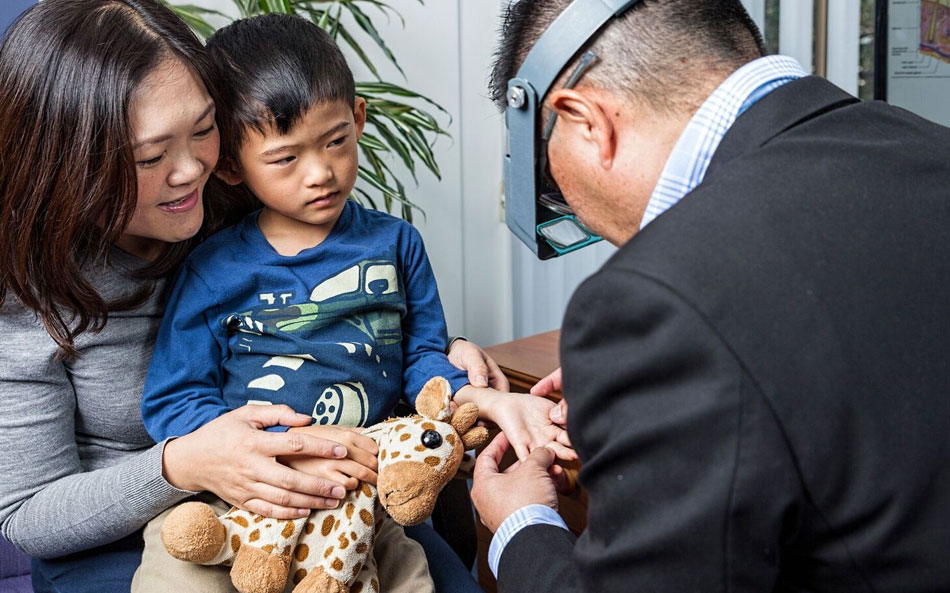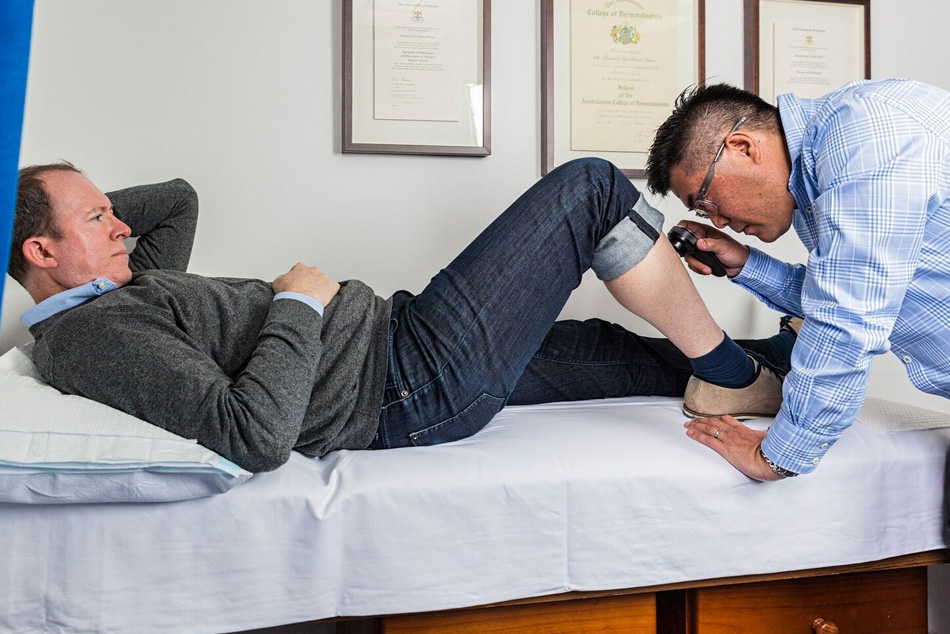General Dermatology

At our clinic, we offer the full range of general dermatology assessment and treatment.
If you are experiencing an unusual or worrying skin change, you should consult with your GP, who will determine whether specialist dermatologist review is necessary. A GP referral to Dr Terence Poon, our dermatologist, will ensure you receive the Medicare rebate for your consult, reducing your out-of-pocket expense.
The types of skin changes that dermatologists should review include (but are not limited to) :
- Changes in the appearance of freckles, moles and other long-standing skin marks
- Increases in generalised pigmentation or redness of the skin
- The appearance of any kind of bump or lump on the skin
- Any open wound, regardless of cause, which does not heal in a reasonable amount of time
- Troublesome or severe acne
- Any skin irritation, dryness or rawness which does not resolve with general measures, such as cessation of topicals such as creams, skin/hair products and perfumes, avoiding hot water and avoiding scratching or picking
- Skin flare ups or inflammation, particularly if you have a family history of rosacea, psoriasis or ezcema
- The development of sun damage symptoms, such as pigmentation, poor skin condition, etc
- Any skin-based problem that is worrying or concerning you.
If our schedule permits, and your recommended treatment involves a laser or therapy that we perform in our clinic, there is a possibility that we can perform the treatment immediately after your consult with the Dermatologist. If this does not suit you, or our schedule is too full, we will schedule your treatment at a mutually convenient time. As some treatments can take several hours, patients often opt for making a separate appointment for treatment.
If the Dermatologist recommends a surgical treatment, we can perform surgical procedures, such as biopsies and excisions, here in our clinic.

General Dermatological Health
Prevention is always better than a cure. For this reason, dermatologists recommend the following general measures for overall skin health.
- Always use sunscreen. Sun damage is the leading cause of preventable skin problems. Sunscreen should have a 50SPF and be used on all exposed skin, regardless of area of the body, whenever you are in the sun.
- Use other forms of sun protection, such as broad-brimmed hats, sunglasses and clothing that does not let light through it. Stay out of the sun during the hottest hours of the day (11am – 3pm). Avoid sun tanning.
- Use good quality products on your skin, dermatologist-approved and suited to your skin type. Products containing harmful chemicals, perfumes and other skin irritants can cause problems to some skin types. We recommend Radiance Skin Care, our in-house product range.
- Eating a diet high in a variety of fruit and vegetables, including lots of water and limited alcohol, gives your skin the best chance of being healthy.
- Get regular skin checks, particularly if you have skin prone to moles, freckles, pigmentation and other sun damage symptoms. Your dermatologist or GP can advise you on how often you should get your skin checked.

Making a consult to see our dermatologist
If you would like to make an appointment to see our Dermatologist, a GP referral is recommended to ensure you receive a Medicare rebate. Please note that a rebate from Medicare may not be available for the treatment of all conditions.
Call our clinic today on (02) 9953 9522, to make an appointment with our Dermatologist.



